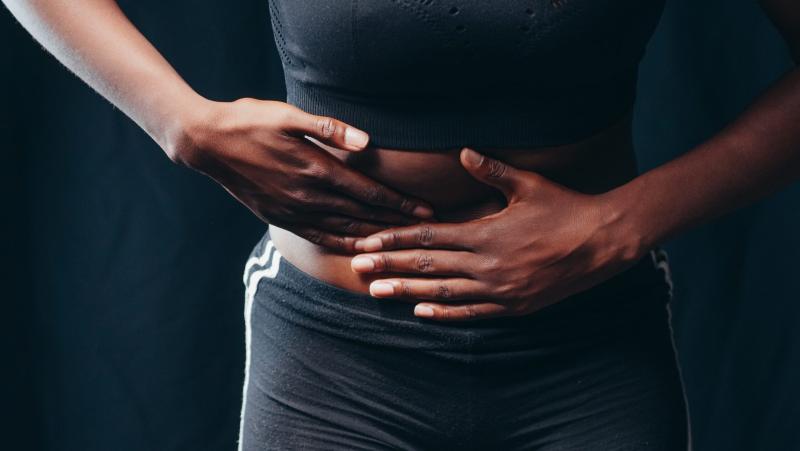What is coeliac disease and what can I do to help?
Have you or a loved one recently been diagnosed with coeliac disease? If so, you are sure to have questions about the diagnosis and want to know how to help yourself or your friend or relative.

It’s good to know that there are lifestyle changes and other tips and tricks that can help you or someone dear to you manage the condition effectively.
Find out more by reading our article and learn how to navigate the early stages of diagnosis with coeliac disease.
What is coeliac disease?
Coeliac disease is an autoimmune disorder where eating gluten triggers an immune response. This means that over time the lining of your small intestine deteriorates and you are unable to absorb certain nutrients.
This damage to the small intestine can result in a range of uncomfortable symptoms.
There’s no cure for coeliac disease, so people diagnosed with it must learn to manage their symptoms over the long term.
Coeliac disease symptoms
Coeliac disease symptoms tend to vary between adults and children. For children, symptoms include:
- Weight loss
- Nausea and vomiting
- Chronic diarrhoea or constipation
- Abdominal bloating and pain
- Gas
- Pale, fatty and unpleasant-smelling stools
Because coeliac disease results in a reduced ability to absorb nutrients, affected children may be shorter than average, have delayed puberty, have damage to their tooth enamel or exhibit neurological symptoms such as attention deficit hyperactivity disorder (ADHD) or headaches.
Symptoms in adults include:
- Weight loss
- Diarrhoea or constipation
- Fatigue
- Gas
- Abdominal pain
- Nausea and vomiting
Adults with coeliac disease may also exhibit the following signs:
- Anaemia
- Loss of bone density (osteoporosis) or bone softening (osteomalacia)
- Dermatitis herpetiformis, an itchy rash with blisters
- Headaches
- Mouth ulcers
- Issues related to the nervous system including tingling and numbness in the hands and feet and problems with balance
- Impaired spleen function (hyposplenism)
- Joint pain
Who is at risk for coeliac disease?
According to Coeliac Australia, coeliac disease is present in around 1 in 70 Australians. However, many of these people will not have a formal diagnosis.
Certain genes are associated with coeliac disease, and you must have one or more of these to develop it.
You are more likely to have coeliac disease if you have certain other conditions or disorders, including:
- Type 1 diabetes
- Lupus
- Rheumatoid arthritis
- Down’s syndrome
- Autoimmune liver disease
- Thyroid disease
How is coeliac disease diagnosed?
If you suspect you may have coeliac disease, go and see your doctor to discuss your symptoms.
You will initially have a blood test. If the result is positive, a small bowel biopsy will follow to confirm the diagnosis.
Treatment for coeliac disease
Treatment is to follow a coeliac disease diet, which means you must stop eating all foods containing gluten.
This stops the damage to the lining of your small intestine and the associated symptoms like abdominal pain and diarrhoea.
Symptoms should start to improve just a couple of weeks after starting this regime, though it may take up to two years for your system to fully heal.
To treat your coeliac disease, food to avoid includes:
- Bread
- Cereals
- Pasta
- Biscuits
- Cakes
- Pies
- Gravies
- Sauces
- Processed meat
- Soup
In short, you will need to avoid anything that contains gluten, such as barley, rye and wheat.
You will need to read food labels carefully, alert staff to your condition when you eat out and avoid cross-contamination when you are cooking at home.
Foods that are naturally gluten-free and safe to eat include:
- Fresh meat, fish and poultry that hasn’t been marinated or coated with breadcrumbs
- Fruit
- Vegetables
- Lentils, beans and rice
- The majority of dairy products
What else can I do to manage coeliac disease?
Other lifestyle changes can help in the management of coeliac disease.
To help keep your digestive system healthy, eat a balanced diet full of fruit and vegetables and drink plenty of water.
You should also exercise regularly to aid digestion and enhance your overall wellbeing.
Another proactive step you can take is to wear a medical alert bracelet that states you have coeliac disease. This means that you are safe in the knowledge that should you have a medical emergency, your carers will be alerted to your condition and you will receive the most appropriate treatment.

Opt for a medic alert bracelet that clearly states “No Gluten” or choose a write on medical ID allowing you to add more details about your condition.
The gift of peace of mind
Living with coeliac disease may seem daunting at first but once you understand how you can manage it, you’ll find renewed zest for life.
As well as making changes to your diet, you can give yourself or a loved one the gift of peace of mind with our medical alert bracelets.
Our IDs and med alerts are designed to convey essential information about your medical condition so you receive the right treatment in the event of an emergency.
So why not check out our collection today and choose a medical ID bracelet for yourself or a loved one? With speedy delivery throughout Australia, you’ll soon be wearing your stylish and practical wristband to give you the confidence to live life to the full.

